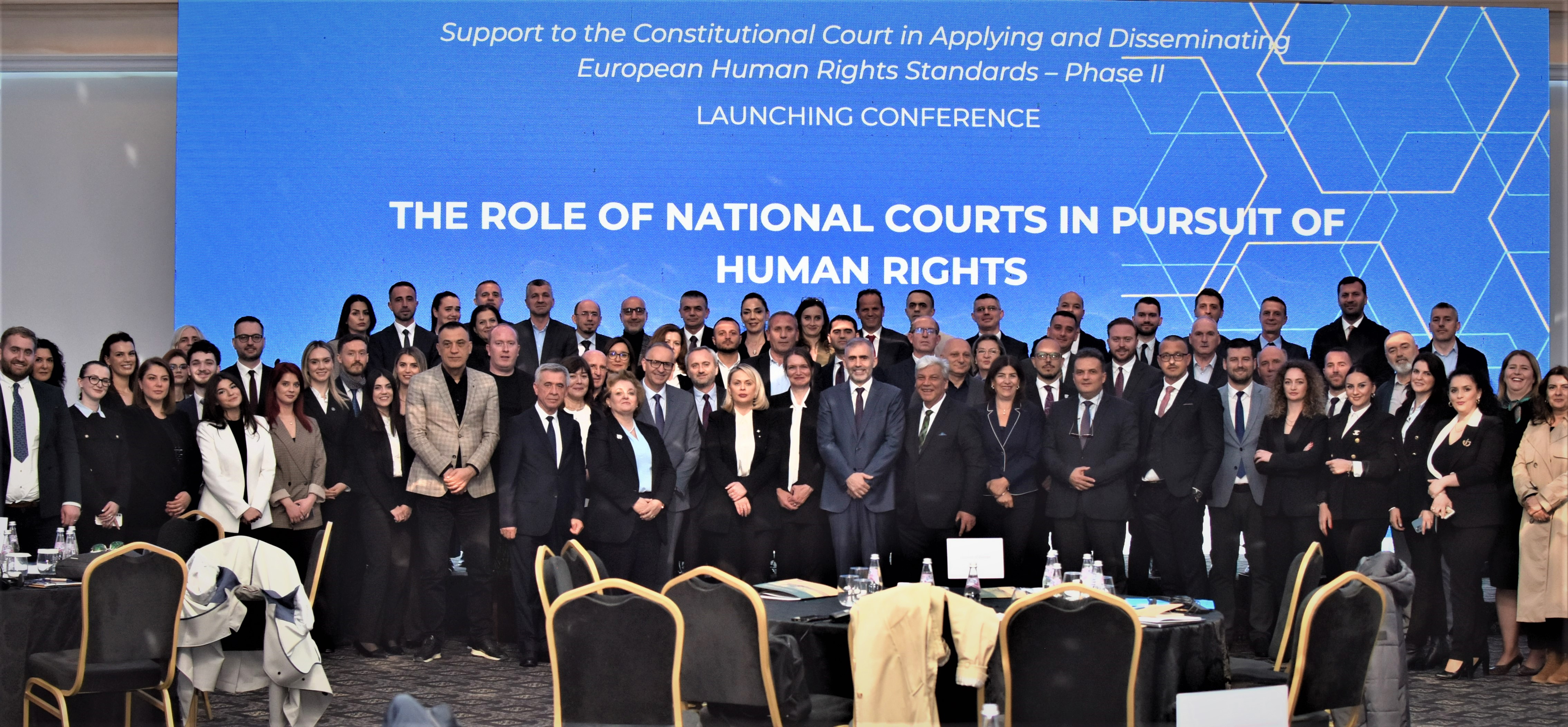More than 100 judges and legal practitioners from Kosovo* gathered in a conference dedicated to judicial protection of human rights, inaugurating a new cycle of the Council of Europe project aimed at supporting the Constitutional Court of Kosovo* in applying and disseminating European human rights standards.
The event featured prominent speakers from Kosovo* and abroad, including: the President of the Constitutional Court of Kosovo*, the President of the Supreme Court, the President of the Appellate Court, the President of the Bar Association, as well as a judge of the Constitutional Court of Slovenia, a specialist from the European Court of Human Rights, other European legal practitioners, officials of the Council of Europe, and civil society representatives.
In the opening and two thematic sessions, fruitful discussions developed around ways of promoting individual access to the Constitutional Court as an effective remedy to human rights violations, while strengthening the role of courts of general jurisdiction in ensuring human rights protection.
More specifically, participants discussed admissibility criteria to the Constitutional Court in the light of the recently completed “Practical Guide on Admissibility Criteria for Individual Applications to the Constitutional Court of Kosovo*,” which was developed in the first phase of the same project and will be disseminated within the legal community in the weeks to come.
Guest speakers presented principles and working methods guiding the European Court of Human Rights, and the Constitutional Courts of Slovenia and Spain – especially when confronted with large number of referrals – whereas lawyers and civil society representatives analysed the reasons behind current inadmissibility of many individual applications before the Constitutional Court.
Hence, the conference provided a platform for reviewing the role of regular courts and lawyers in applying human rights standards set in the European Convention on Human Rights, which is directly applicable and forms integral part of the domestic legal order by virtue of the Constitution of Kosovo*.
The project will carry on with a series of workshops targeting lawyers, in cooperation with all regional branches of the Kosovo* Bar Association, with a view to briefing them on admissibility criteria to the Constitutional Court of Kosovo*, and to further disseminate knowledge about European human rights.

* All references to Kosovo, whether the territory, institutions or population, in this text shall be understood in full compliance with United Nations' Security Council Resolution 1244 and without prejudice to the status of Kosovo.




